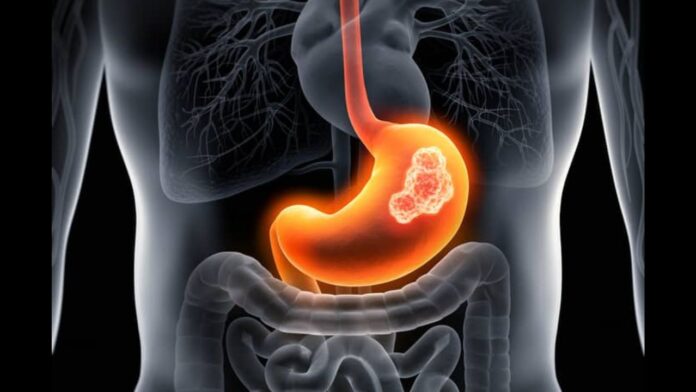Stomach cancer poses a significant health challenge in India. Also known as gastric cancer, stomach cancer initiates as abnormal cell growth in the stomach, situated in the upper central region of the abdomen, directly below the ribs. Responsible for digesting and breaking down meals, every part of the stomach is susceptible to this disease, commonly affecting the major portion known as the stomach body worldwide.
Symptoms: Stomach cancer is more prevalent in older adults, with a slightly higher occurrence in men. Symptoms can be asymptomatic or present with nonspecific signs like indigestion, heartburn, or stomach discomfort. In advanced stages, symptoms include unintentional weight loss, persistent abdominal pain, nausea, vomiting, difficulty swallowing, blood in the stool, fatigue, and a sense of fullness or bloating after eating small amounts.
Symptoms may not manifest until the cancer has advanced, with later stages displaying extreme fatigue, spontaneous weight loss, vomiting blood, and dark stools. Metastatic stomach cancer, spreading to other areas of the body, exhibits unique symptoms based on the affected areas, such as visible lumps in the skin or yellowing of the eyes if it reaches the liver.
Causes: Several factors contribute to stomach cancer, including Helicobacter pylori infection, dietary choices, alcohol and tobacco use, and genetic predisposition. Inherited genetic diseases like hereditary diffuse gastric cancer (HDGC) can increase susceptibility.
Treatment and Prognosis: The prognosis for stomach cancer depends on factors such as the stage at diagnosis, the extent of spread, and the individual’s overall health. Early-stage diagnosis generally has a better prognosis. Treatment options include surgery, chemotherapy, targeted therapy, or radiation therapy, depending on the cancer’s stage.
Prevention: Preventive measures include maintaining a healthy lifestyle with weight management, avoiding tobacco and excessive alcohol, and following a balanced diet rich in fruits and vegetables. Treating H. pylori infection can reduce the risk, and individuals with a family history or specific genetic conditions may benefit from regular screening to detect cancer early.

 English
English






